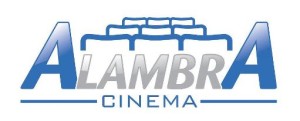Fraud and frauds
Each year we come across a large number of complaints involving fraudulence and frauds. The circumstances are wide-ranging, from disputed card deals and money – device withdrawals to online banking identity and fraud theft. Fraud causes economic and psychological harm so it is extremely important that businesses take that into consideration whenever investigating a problem.
These pages contains information on our approach that is general to about fraudulence and frauds for economic companies. If you’re trying to find information especially pertaining to Covid-19, please have a look at our devoted web page which has information for economic companies about complaints pertaining to Covid-19 .
One of many crucial concerns to start thinking about is whether the re re payment under consideration is authorised. In broad terms, “ authorised ” in this context ensures that a customer offered their bank an instruction which will make a repayment from their account, consistent with its conditions and terms. To put it differently, they knew that money had been leaving their account – wherever that money really went.
Laws declare that if a client hasn’t authorised a repayment, the lender should refund the cash – as long as the consumer hasn’t acted fraudulently, or with intent or “ gross negligence ” . W e use the view that “ gross negligence ” is really a suitably high club that goes well beyond ordinary carelessness.
In terms of payments that customers have actually authorised by themselves, the starting place at law is their bank won’t be liable for the customer’s loss, even if it is the consequence of a scam.
You will find, nonetheless, some circumstances where we believe banking institutions, considering appropriate guidelines, codes and practice standards that are best, shouldn’t took their clients’ authorisation instruction at “ face value ” – or needs to have looked over the wider circumstances surrounding the deal prior to making the re re payment. As well as on 28 might 2019, a code that is voluntary into force to give consumers further protection.
We’ll appearance very carefully in the circumstances behind each grievance, examine the data and decide – on stability – what we think has occurred, and whom should fairly and fairly keep the loss.
Forms of grievance we come across
The number of complaints we come across is continually evolving as fraudsters develop brand brand new and increasingly clever practices. These frequently count on very manipulative strategies referred to as “ social engineering ” to trick the client into parting along with their money or sharing private information. In other circumstances, the client informs us that information on their card , banking or identification had been acquired and utilized fraudulently. Often customers merely don’t know how a fraudster got many of these details that are personal.
A big percentage of the complaints we come across fall under the following 3 groups:
- P lastic – card deals that the client informs us they didn’t make or authorise – such as for instance acquisitions of products or services online or to get or nightclubs .
- S cams where in fact the consumer ended up being tricked into handing over their bank details, enabling the fraudster to just simply just take cash from their account without their permission .
- S cams in which the consumer had been tricked into moving cash in to the fraudster’s account – often since they thought these were creating a repayment for their bank or another trusted organization .
Types of other complaints we come across involving fraudulence and scams consist of:
- ID theft, the place where a fraudster has utilized the customer’s identification to have products or solutions – typically that loan from the payday financial institution
- cheque transformation, where a cheque happens to be stolen by way of a party that is third
- cases where a person feels they’ve been unfairly positioned on a fraudulence avoidance database

